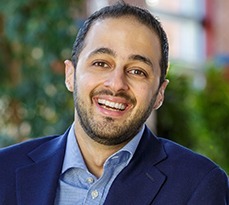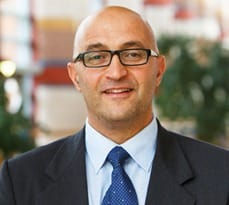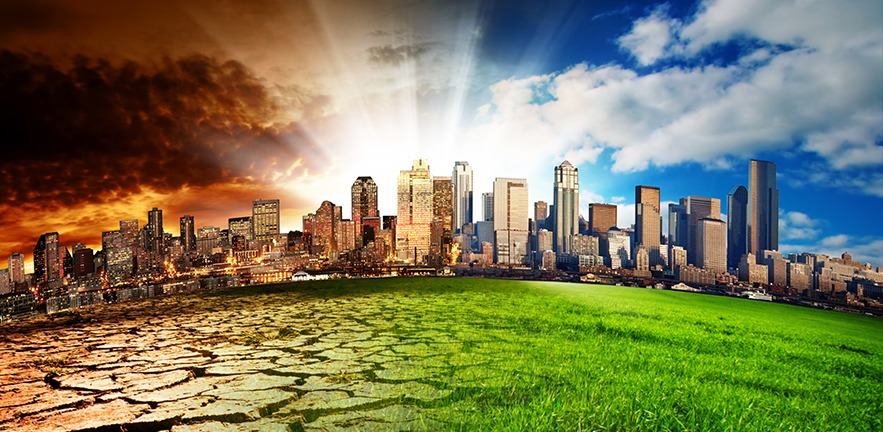The Cambridge Zero Climate Change Festival, 6-13 November, features presentations from experts throughout the University of Cambridge community including Dr Kamiar Mohaddes and Dr Khal Soufani of Cambridge Judge Business School.
The festival, organised by the Cambridge Zero climate change initiative and Cambridge University Press, is a free, virtual event that features games, stories and research papers on sustainability topics ranging from the effect of the coronavirus pandemic on climate change to cooking with biofuels to cleantech solutions.

Dr Kamiar Mohaddes, University Senior Lecturer in Economics & Policy at Cambridge Judge, will be part of a panel presentation on the festival’s final day on “Climate Change and Finance”, which will look at how bringing the global economy in line with the Paris Agreement and national commitments on emissions will require investments in areas including energy, food systems, transport infrastructure and waste management. Some estimates place the price tag of such necessary investments at $1.6 trillion to $3.8 trillion every year between 2016 and 2050.
The session will also look at the impact of ESG (environmental, social and governance) investing, and whether firms’ ratings in this area had an impact on stock returns during the pandemic, as well as Kamiar’s research on how to measure country-level risks from climate change.
Dr Khal Soufani, Faculty (Professor level) in Management Practice and Director of the Circular Economy Centre at Cambridge Judge, will also speak on the festival’s final day on the topic of “Sustainability, circular economy and impact investing”. Among other topics, he will discuss how impact investments are an important enabler to achieve a circular economy model and ultimately achieve sustainability goals.

In his annual address on 1 October, University of Cambridge Vice-Chancellor Professor Stephen J Toope announced that the University aims to divest from all direct and indirect investments in fossil fuels by 2030 as part of the University’s plan to cut its greenhouse gas emissions to zero by 2038, more than a decade before the date set by the UK government.
“The University is responding comprehensively to a pressing environmental and moral need for action with an historic announcement that demonstrates our determination to seek solutions to the climate crisis. We will approach with renewed confidence our collaborations with government, industry and research partners around the world as together we work for a zero-carbon future,” Vice-Chancellor Toope said.
Cambridge Judge has incorporated sustainability into its programmes, buildings and research centres. Recent initiatives include:
- The School’s sustainability-related modules in degree programmes currently include an MBA elective on “Managing for Sustainability”; an elective in the Masters of Studies in Entrepreneurship programme on “Sustainability and Conscious Capitalism”; and a new elective in the Master of Finance (MFin) programme on “Sustainable Finance” that looks at how this area has become a major growth area in the capital markets, with annual sustainable debt issuance now estimated to exceed $400 billion.
- Our Master of Accounting degree programme also recently organised the Climate-Related Financial Reporting Conference, which attracted financiers, risk officers, investors and others to discuss the implications of global climate change on financial performance and risks.
- The Executive Education division of Cambridge Judge is offering a new open programme on “Circular Economy and Sustainability: Impact on Business Models, Finance & Investments”. Four half-day morning sessions are being offered online on 26-27 November and 30 November-1 December, and speakers include Khal Soufani and Christoph Loch, Dean of the Business School.
- A team consulting project on the Cambridge Judge Executive MBA programme worked with Made in Britain, an organisation that supports UK manufacturing, to develop a sustainability accreditation system aligned with universally agreed UN SDG 12. The system encompasses four attainment levels, and is designed to allow annual participation to progress through the levels if firms so choose.
- A team of four Cambridge MBA students won first place in the Climate Investment Challenge, organised by Imperial College’s Centre for Climate Finance and Investment, that focuses on a sustainable timber REIT (Real Estate Investment Trust). The REIT will invest in greenfield properties to influence and scale up the timber building industry.
- A team of Cambridge MBA students recently won a prize of $25,000 at the global MBA Impact Investing Network & Training (MIINT) competition, and as their chosen venture they invested the money in Oxwash, an Oxford-based laundry business serving NHS staff during the coronavirus pandemic. The team were awarded first runner-up in a competition with around 100 MBA teams globally.
- Among sustainability-focused ventures currently on the Accelerate Cambridge programme of the Entrepreneurship Centre at Cambridge Judge are: Ambify, an environmental health tech company developing wearable devices to reduce the impact of environmental pollutants on our health and wellbeing; CambAir, which is developing a map to enable people to choose cleaner options for everyday living; eCo-Sense, which seeks to improve crop growth proactivity to boost global food security; and Outfield, which provides farmers with access to new drone technologies for precision farming.


